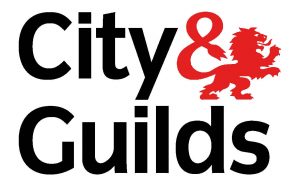The life of a plumber is often an incredibly satisfying one. No two days are the same, the profession is in huge demand, salaries are above average and plenty of varied progression routes exist.
A plumber’s skill set is one that will always be required. That not only brings with it a hugely important element of job security, it also means qualified plumbers are in complete control of their own career path.
Self-employed
The opportunity to launch your own business is one of the most appealing factors that comes with a career in plumbing. Tradespeople are often in a position to go self-employed faster than other industries due to the high demand, and being able to set your own rates and workloads offers great opportunities for a healthy work-life balance.
The qualifications you’ll need will depend on the environment you plan to work in. Domestic plumbers work in a household setting on things like appliance installation and maintenance, bathroom fitting, heating systems and emergency repairs.
A City & Guilds Level 2 Qualification is enough to carry out basic domestic tasks, though those wanting to pursue more advanced work should consider studying for their NVQ Level 2.
Self-employed plumbers also have the option to work on-site, typically on larger-scale, more complex projects. NVQ Level 2 certification will be required to carry out site work, though a CSCS card is also required on just about any site in the UK.
It’s also worth noting that any plumber carrying out work on gas appliances must be a member of the Gas Safe Register.
Working as a contractor
Contractors lend their expertise to a person or business under a ‘contract for services’, meaning they’re still technically self-employed. However, they are typically more experienced than a regular plumber and are often required for more complicated projects.
In a domestic setting, a plumbing contractor could deal with things like new builds, remodels and renovations as they require brand new, or significantly altered systems.
Plumbing contractors are not only trained in plumbing, but also in construction and service. This means they’re well-equipped to deal with the more challenging projects that come with both commercial and site work. This can range from designing water systems fit for high-rise buildings, to ensuring any plumbing work carried out meets building safety regulations.
Given the more advanced nature of a contractor’s work, aiming for NVQ Level 3 certification is wise and can improve your employability potential. Specialist programmes like Water Regulations, Energy Efficiency and Unvented Hot Water Systems could also be considered.
Working for a business
There is also the more traditional pathway of working for an already-established business. While this may limit your earning potential to some extent, there are plenty of other benefits to balance that out.
This way can often be more secure, as you don’t have to worry about finding steady work for yourself. It also means you don’t have to deal with the admin that comes with setting up your own business.
Salary and demand for qualified plumbers
The average salary for a plumber in the UK is currently £34,759, though that figure can increase depending on experience and location.
Should you opt for the self-employed route, those numbers have the potential to rise even further. Experienced plumbers working for themselves can take home around £1,000 a week.
As has been the case for years now, plumbers remain in incredibly high demand. In fact, research has shown that the profession was actually the most in-demand trade in 2020.
Undertaking training designed and taught by experts is the best possible way to ensure your skills are of the necessary standard to attract customers.
The City & Guilds Level 2 Plumbing course is an industry-recognised, formal trade qualification that serves as an ideal starting point for anyone looking to really kick start their career as a plumber.

Need a little more guidance? We’d love to chat, just give us a call on 01322 280 202, request a brochure or pop into our training centre.